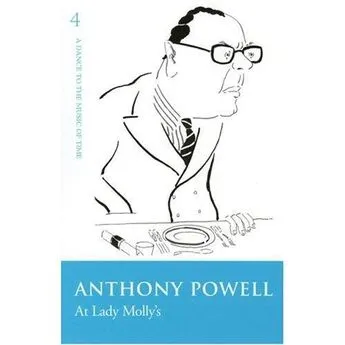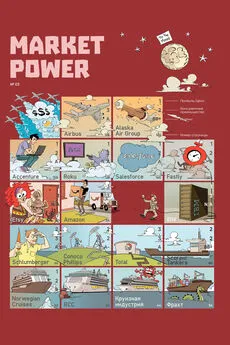Anthony Powell - A Buyers Market
- Название:A Buyers Market
- Автор:
- Жанр:
- Издательство:Arrow
- Год:2005
- ISBN:нет данных
- Рейтинг:
- Избранное:Добавить в избранное
-
Отзывы:
-
Ваша оценка:
Anthony Powell - A Buyers Market краткое содержание
Anthony Powell's universally acclaimed epic A Dance to the Music of Time offers a matchless panorama of twentieth-century London. Now, for the first time in decades, readers in the United States can read the books of Dance as they were originally published-as twelve individual novels-but with a twenty-first-century twist: they're available only as e-books. The second volume, A Buyer's Market (1952), finds young Nick Jenkins struggling to establish himself in London. Amid the fever of the 1920s, he attends formal dinners and wild parties; makes his first tentative forays into the worlds of art, culture, and bohemian life; and suffers his first disappointments in love. Old friends come and go, but the paths they once shared are rapidly diverging: Stringham is settling into a life of debauchery and drink, Templer is plunging into the world of business, and Widmerpool, though still a figure of out-of-place grotesquerie, remains unbowed, confident in his own importance and eventual success. A Buyer's Market is a striking portrait of the pleasures and anxieties of early adulthood, set against a backdrop of London life and culture at one of its most effervescent moments.
A Buyers Market - читать онлайн бесплатно полную версию (весь текст целиком)
Интервал:
Закладка:
I thought it improbable that Widmerpool would ever change his manner at the mandate of Sir Magnus Donners, Truscott, Stringham, or anyone else, though the projected employment — an aspect of those rather mysterious business activities, so different from those of my own small firm — sounded normal enough. In fact the job, as such, did not at the time make any strong impression on me. I felt more interest in trying to learn something of Stringham’s life. This seemed an opportunity to make some inquiries.
“Oh, yes,” said Truscott, almost with enthusiasm. “Of course Charles is still with us. He can really be quite an asset at times. Such charm, you know. But I see my Chief has arrived. If you will forgive me …”
He was gone instantaneously, stepping quickly across the floor to meet, and intercept, a tallish man, who, with Mrs. Wentworth at his side, had just entered the room. At first I was uncertain whether this outwardly unemphatic figure could indeed be Sir Magnus Donners, the person addressed by Truscott being so unlike my pre-conceived idea of what might be expected from the exterior of a public character of that particular kind. Hesitation on this point was justifiable. The name of Sir Magnus Donners, both in capacity of well-known industrialist and former member of the Government (in which he had never reached Cabinet rank) attached to the imagination, almost automatically, one of those paraphrases — on the whole uncomplimentary — presented by the cartoonist; representations that serve, more or less effectually, to supply the mind on easy terms with the supposedly salient traits, personal, social, or political, of individuals or types: such delineations being naturally concerned for the most part with men, or categories of men, to be thought of as important in exercising power in one form or another.
In the first place, it was unexpected that Sir Magnus Donners should look at least ten years younger than might reasonably have been supposed; so that, although well into his middle fifties — where he stood beneath an unsatisfying picture executed in the manner of Derain — he seemed scarcely middle-aged. Clean-shaven, good-looking, rather than the reverse, possibly there was something odd, even a trifle disturbing, about the set of his mouth. Something that perhaps conveyed interior ferment kept in severe repression. Apart from that his features had been reduced, no doubt by laborious mental discipline, to a state of almost unnatural ordinariness. He possessed, however, a suggestion about him that was decidedly parsonic: a lay-reader, or clerical headmaster: even some distinguished athlete, of almost uncomfortably rigid moral convictions, of whose good work at the boys’ club in some East End settlement his own close friends were quite unaware. The complexion was of a man whose life appeared to have been lived, on the whole, out of doors. He seemed, indeed, too used to the open air to be altogether at ease in evening clothes, which were carelessly worn, as if only assumed under protest, though he shared that appearance of almost chemical cleanliness characteristic, in another form, of Archie Gilbert. At the same time, in spite of these intimations of higher things, the heavy, purposeful walk implied the professional politician. A touch of sadness about his face was not unprepossessing.
That ponderous tread was also the only faint hint of the side expressed by common gossip, for example, at Sillery’s — where Bill Truscott’s connection with Donners-Brebner made Sir Magnus’s name a relatively familiar one in the twilight world of undergraduate conversation — that is to say, of a kind of stage “profiteer” or “tycoon”: a man of Big Business and professionally strong will. Such, indeed, I had previously pictured him. Now the matter, like so many others, had to be reconsidered. Equally, he showed still less of that aspect called up by the remark once let fall by Stringham: “He is always trying to get in with my mother.” Everything about Sir Magnus seemed far too quiet and correct for any of his elements even to insinuate that there could be in his conduct, or nature, anything that might urge him to push his way into a world where welcome admission might be questionable — even deliberately withheld. Indeed, much later, when I came to hear more about him,’ there could be no doubt that whatever efforts Sir Magnus may have made to ingratiate himself with Mrs. Foxe, through her son, or otherwise — and there was reason to suppose such efforts had in truth been made — must have been accountable to one of those whims to which men of his sort are particularly subject; that is to say, desire to cut a figure somewhere outside the circle familiar to themselves; because Sir Magnus was, after all, in a position, so far as that went, to “go” pretty well anywhere he might happen to wish. The social process he elected to follow was rather like that of mountaineers who chose deliberately the sheer ascent of the cliff face; for it was true I found particular difficulty in associating him with Stringham, or, so far as I knew of them, with Stringham’s family. Widmerpool, on the other hand, though this was by the way, was a victim easily imaginable; no doubt, as I guessed, fated to-be captivated irrevocably at his pending interview by that colourless, respectable, dominating exterior of “the Chief.”
What part Mrs. Wentworth played in Sir Magnus’s life was, of course, a question that at once suggested itself. He was not married. Truscott’s words: “He told Baby Wentworth he would look in — so it’s a virtual certainty,” seemed to imply a fairly firm influence, or attachment, of one kind or another, probably temporary. However, as Sir Magnus and Mrs. Wentworth came through the door, side by side, there was nothing in their outward appearance to denote pleasure in each other’s company. On the contrary, they had entered the room together, both of them, with an almost hang-dog air, and Mrs. Wentworth’s features had lost all the gaiety and animation assumed earlier to charm Prince Theodoric. She now appeared sulky, and, if the word could be used at all of someone so self-possessed, and of such pleasing face and figure, almost awkward. It was rather as if they were walking away together from some excessively embarrassing scene in which they had been taking joint part: some incident for which the two of them felt both equally to blame, and heartily ashamed. I could not help thinking of one of those pictures — neither traditional, nor in Mr. Deacon’s vernacular, but in “modern dress” a pictorial method of treating Biblical subjects then somewhat in vogue — of Adam and Eve leaving the Garden of Eden after the Fall: this impression being so vivid that I almost expected them to be followed through the door by a well-tailored angel, pointing in their direction a flaming sword.
Any such view of them was not only entirely fanciful, but perhaps also without any foundation in fact, because Truscott seemed to regard their bearing as perfectly normal. He came up to them buoyantly, and talked for a minute or two in his accustomed easy style. Mrs. Wentworth lit a cigarette, and, without smiling, watched him, her eyebrows slightly raised. Then she spoke to Sir Magnus, at which he nodded his head heavily several rimes. Perhaps arrangements were-being made for sending her home in his car, because he looked at his watch before saying good night, and asked Truscott some questions. Then Mrs. Wentworth, after giving Sir Magnus little more than a nod, went off with Truscott; who returned a minute or two later, and settled down with his employer on the sofa. They began to talk gravely, looking rather like father and son, though, strangely enough, it might have been Truscott who was playing the paternal role.
By now the crowd had thinned considerably, and the music of the hunchback’s accordion had ceased. I was beginning to feel more than a little exhausted, yet, unable to make up my mind to go home, I wandered rather aimlessly round the house, throughout which the remaining guests were now sitting about in pairs, or larger groups. Chronological sequence of events pertaining to this interlude of the party became afterwards somewhat confused in my head. I can recall a brief conversation with a woman — not pretty, though possessing excellent legs — on the subject of cheese, which she alleged to be unprocurable, at the buffet. Prince Theodoric and Sillery had disappeared, and already there was the impression, given by most parties, sooner or later, that the residue still assembled under Mrs. Andriadis’s roof was gradually, inexorably, sinking to a small band of those hard cases who can never tear themselves away from what still remains, for an hour or so longer, if not of gaiety, then at least some sort of mellow companionship, and protection from the austerities of the outer world.
Two young men strolled by, and I heard one of them say: “Poor Milly really got together quite an elegant crowd to-night.”
The other, who wore an orchid in his button-hole, replied: “I felt that Sillery imparted a faintly bourgeois note — and there were one or two extraordinary figures from the lofts of Chelsea.”
He added that, personally, he proposed to have “one more drink” before leaving, while the other murmured something about an invitation to “bacon and eggs at the Kit-Cat.” They parted company at this, and when the young man with the orchid returned from the bar, he set down his glass near me, and without further introduction, began to discuss, at large, the house’s style of decoration, of which he appeared strongly to disapprove.
“Of course it must have cost a fortune to have had all those carpets cut right up to the walls,” he said. “But why go and spoil everything by these appalling Italianate fittings — and the pictures — my God, the pictures.”
I asked if the house belonged to Mrs. Andriadis.
“Good heavens, no,” he said. “Milly has only taken it for a few months from a man named Duport.”
“Bob Duport?”
“Not an intimate friend of yours, I hope?”
“On the contrary.”
“Because his manners don’t attract me.”
“Nor me.”
“Not that I ever see him these days, but we were at the same college — before he was sent down.”
I commented to the effect that, however unsatisfactory its decoration might be, I found the house an unexpectedly sumptuous place for Duport to inhabit. The young man with the orchid immediately assured me that Duport was not short of money.
“He came into quite a bit,” he said. “And then he is one of those men money likes. He is in the Balkans at the moment — doing well there, too, I have no doubt. He is, I regret to say, that sort of man.”
He sighed,
“Is he married?”
“Rather a nice wife.”
Although I scarcely knew Bob Duport, he had always remained in my mind on account of his having been one of the company when Peter Templer, in a recently purchased car, had driven Stringham and myself into the ditch, together with a couple of shop-girls and another unprepossessing friend of Templer’s called Brent. That episode had been during the single term that Stringham had remained in residence at the university. The incident seemed absurd enough when looked back upon, but I had not greatly liked Duport. Now I felt, for some reason, inexplicably annoyed that he should own a house like this one, however ineptly decorated, and also be the possessor of a wife whom my informant — whose manner suggested absolute infallibility on such matters — regarded as attractive; while I myself, at the same time, lived a comparative hand-to-mouth existence in rooms, in my own case, there had never been any serious prospect of getting married. This seemed, on examination, a contrast from which I came out rather poorly.
Читать дальшеИнтервал:
Закладка:









